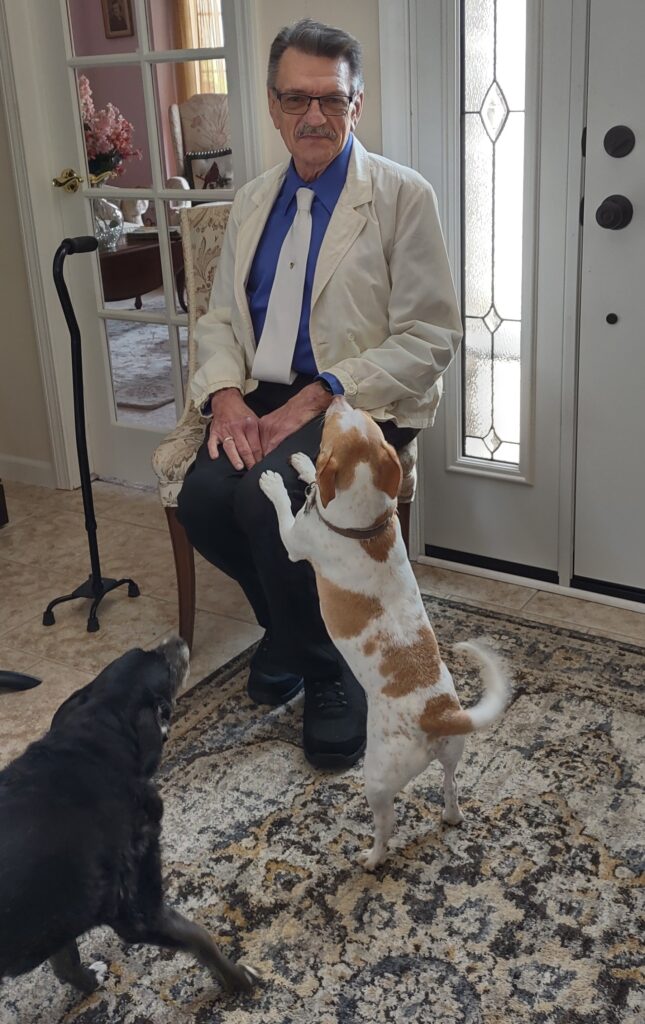“I really think it’s good if you want to get involved in your care.”

Palliative care is not often thought of as a long-term option for managing patients’ health concerns, but Louie, a regular visitor to the Henry Ford Health system, has learned otherwise over the past year.
In June of 2024, Louie enrolled in Henry Ford’s Palliative Care at Home, a program that helps people with chronic and complex health conditions coordinate their care and improve their quality of life. Because palliative care can be started at any time during the course of an illness, Louie has had the benefit of palliative care services in the comfort of his own home ever since.
He explains that his primary care doctor recommended the program, which gave him the confidence to give it a try. “I didn’t know what it was, and my doctor said, have your first visit and see what you think. It went well, and I liked it. The first nurse that came over, she was a lot of fun,” says Louie. “I felt like she was more of a friend coming over than a nurse.” With each visit, the palliative care team checks in to see what questions or challenges Louie has experienced since their last meeting, alongside a physical assessment including vital signs.
Valuable care management
Palliative care goes beyond those regular visits, though, Louie shares. “It gives me someone who is connected to the medical field in case something goes wrong. There’s always someone there who will listen to me. They’re aware of all my issues, they have the doctor’s notes right there if I don’t understand something.”
That connection has helped Louie sort through complicated care arrangements, especially as he transitioned to a new primary care doctor when his previous doctor left the practice for another role. “That was so confusing,” he says. “They helped coordinate things so I did get to meet the new doctor and make contact with him.” For Louie, that meant his new doctor came to see him at home, thanks to efforts from the palliative care team.
Palliative care in the comfort of home
“I like that they come to my house,” Louie adds. “I’m more comfortable in my environment, I’m more comfortable talking about different things that have happened.”
Because one of his health challenges includes struggles with balance, Louie finds the home visits are safe and convenient. “I live in a farm town, and it’s pretty far for me to go anywhere,” he explains. When he does arrive at the clinic, “We have to get a wheelchair, because the parking lot is so far from the building— and then we have to go the 13th floor and then hike from the check-in desk to where the clinic is. I can’t do all that walking—I can’t walk very far.”
At home, virtual visits allow him to see a nurse practitioner, and at one visit, Louie was relieved to hear reassurance from his nurse that a concerning lump didn’t appear to be anything serious— which was confirmed at his next visit with his physician.
“I really think it’s good if you want to get involved in your care. It’s a good program. If you have multiple things going on, it’s good to have someone to talk to.”
